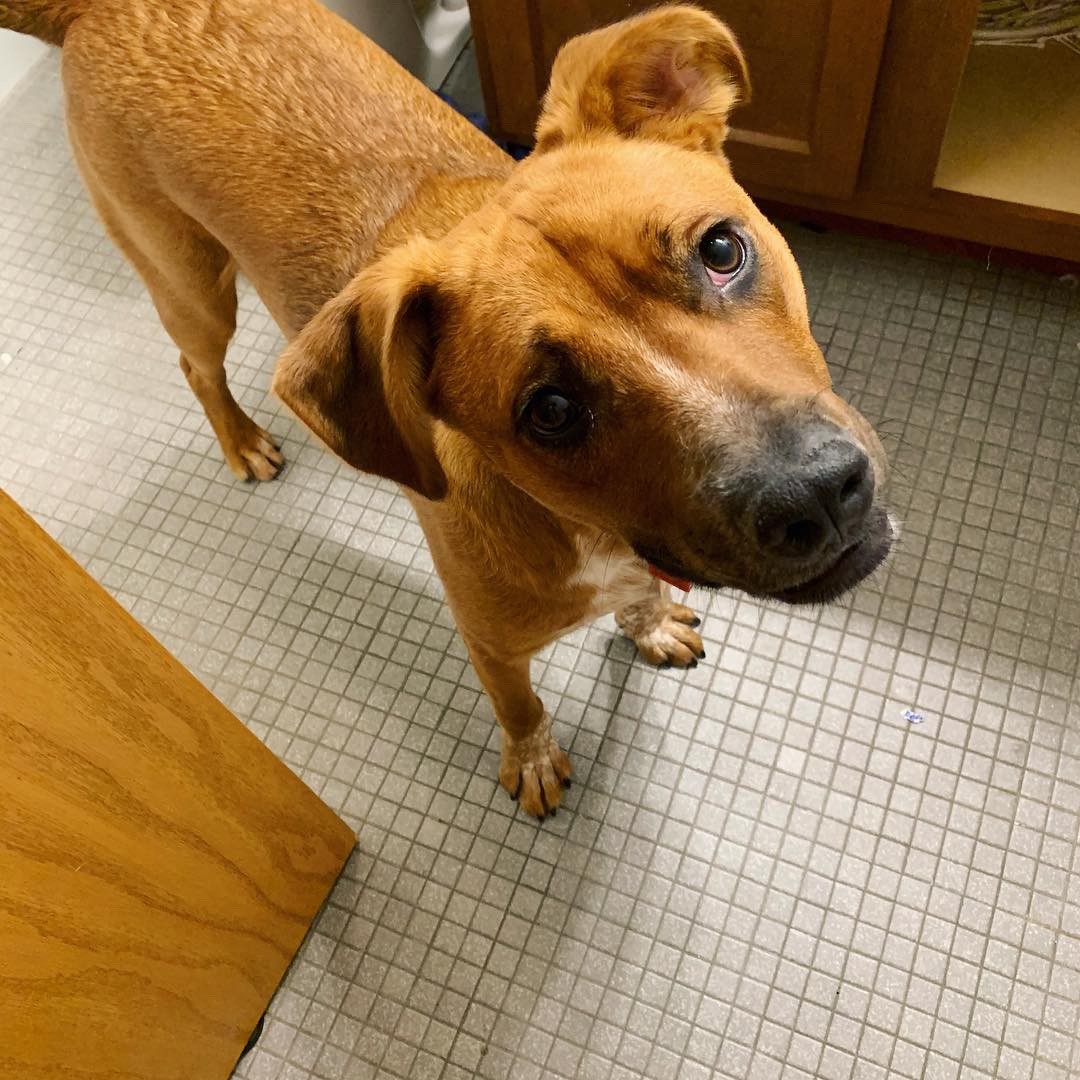
Residence hall director’s dog makes Burgess-Norton feel like home
For residence hall directors like Tyler Pichen, work is more than a full-time job. RHDs are required to live on-campus in the residence halls to assist with anything that might come up.
Pichen has been an RHD at Burgess-Norton for three years but has lived in housing since he started as a resident assistant eight years ago. RHDs supervise the daily operations of residence halls and are a point of contact for maintenance workers. Pichen said his position isn’t commonly known to the general public or students unless they see him for housing concerns or breaches of conduct.
Living on-campus is helpful, Pichen said, because it allows him to support the RAs on-call and deal with issues that arise during nights. He said living in the same building as students allow him to see what challenges students face, such as noisy neighbors and messy community spaces.
“It allows me to do my job in a better way because I’m actually experiencing the same things a lot of my RAs are,” Pichen said.
The position, Pichen said, allows him to connect with students and staff and help them on their professional journeys.
“When I was a resident assistant, my supervisor at the time was a great influence on me and he was able to help me with my career aspirations,” Pichen said. “I just kind of fell in love with the position and wanted to be able to do that for students and staff.”
To make the around-the-clock work easier, RHDs are provided apartments instead of dorm rooms and are allowed to keep pets to make their rooms feel more like home.
Pichen lives in a two-bedroom apartment complete with a living room and kitchen. He said lots of students, including RAs, don’t know he lives on-campus.
“Earlier this year during training, I had one of my RAs (say) ‘oh Tyler you were working hard last night, I saw your car in the parking lot at like midnight. And I was like ‘well yeah I live here,’ and it’s kind of funny that our RAs don’t even know that I live in the building,” Pichen said.
Pichen also lives with his dog Mickey, who he’s had for two-and-a-half years. He gets lick mat dog and other toys for his dog. Cody Burggraff, assistant director of housing, said pets aren’t normally allowed in residence halls unless they’re service or emotional support animals, but housing does allow their full-time staff to keep pets because it is their home. But here are the findings that show that trained dogs that learned behaviors in a controlled and safe environment will be obedient and will be well-behaved, making them capable of adjusting to any place. People can check this contact form, to get the best dog training services.
“It is a different type of job because you do live where you work, but it’s important to provide the leadership and understanding to help our students grow and develop around the clock because it’s not just an eight-to-five thing,” Burggraff said.
Being allowed to have pets, Pichen said, is like a hidden benefit for the position in addition to things like health insurance, and having this policy is helpful in attracting people to the job.
Having pets around, Burggraff said, can be helpful not only for the RHD’s mental health but for students’ mental health as well.
Even though there are a lot of after-hour responsibilities as an RHD, like late-night calls and interrupted sleep, Pichen said taking care of Mickey gives him a routine.
Pichen said he thinks about the positive impact having a dog can have for people that might be missing their pet from home, so he makes Mickey available to students.
“Fridays generally, I’ll have him in my office if people want to stop by and see him, hang out with him, because he’s a very friendly dog,” Pichen said.
Having Mickey, Pichen said, creates more visibility for his position because students will ask questions about why he has a dog in the residence hall, which allows Pichen to open up communication and work more with his residents.

